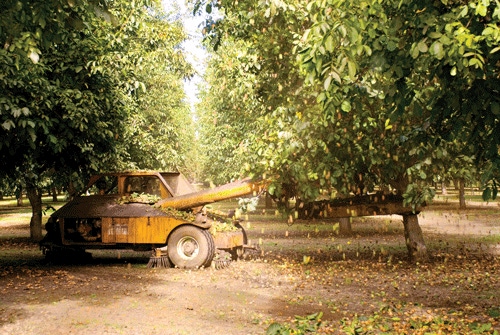
Sediment management in almond orchards has gained significant attention since a Merced County almond grower was recently fined more than $400,000 for failing to adequately address sediment runoff from a newly planted almond orchard into Peaslee Creek and the Tuolumne River.The NRCS has funds available to help growers offset the cost of improvements to reduce erosion, runoff and the impact on water quality from new and replanted orchards.
September 3, 2010

Almond growers attended a meeting of the East San Joaquin Water Quality Coalition to address sediment management in almond orchards in the lower Sierra foothills. The issue has gained significant attention since a Merced County almond grower was recently fined more than $400,000 for failing to adequately address sediment runoff from a newly planted almond orchard into Peaslee Creek and the Tuolumne River.
Terry Bechtel, environmental scientist with the Central Valley Regional Water Quality Control Board, said the foothills area in Merced and Stanislaus counties is particularly prone to sediment runoff, which is regulated under the Irrigated Lands Regulatory Program.
“There are highly erodible soils here with fine sediments,” he said.
Fisheries biologist Jennifer O’Brien, with the California Department of Fish and Game, explained the impacts of sediment on the life cycle and habitat of endangered salmon species in the Tuolumne and Merced rivers.
The Natural Resources Conservation Service (NRCS) has funds available to help growers offset the cost of improvements to reduce erosion, runoff and the impact on water quality from new and replanted orchards. Some of those measures might include planted vegetation or installations of sediment basins or holding ponds.
Chris Hartley, with the NRCS in Stanislaus County, said the local NRCS office can help with design and evaluation of runoff mitigation plans at no cost to the grower.
You May Also Like



